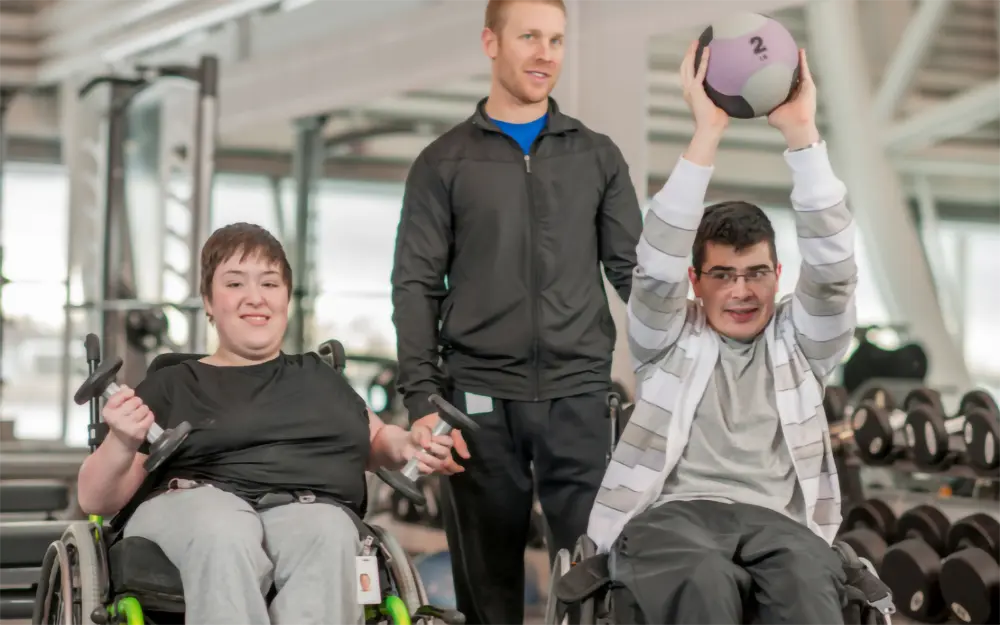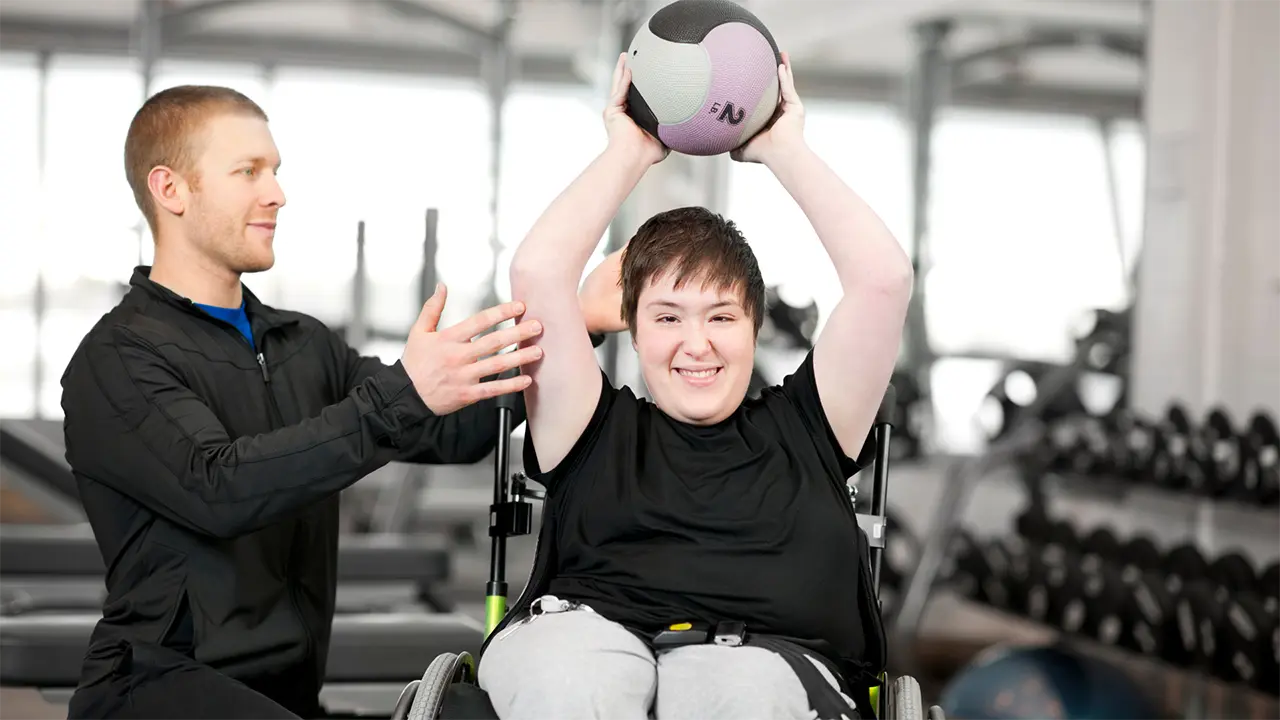
Are you or someone you know living with a disability? If so, you understand the challenges that can arise in everyday life. But did you know that NDIS physiotherapy services can greatly improve the quality of life for individuals with disabilities? In this article, we will explore the importance of NDIS physiotherapy services and how they can maximise your quality of life.
Physiotherapy plays a crucial role in the overall well-being of individuals with disabilities. It focuses on improving physical abilities, reducing pain, and enhancing mobility. NDIS physiotherapy services are specifically tailored to meet the unique needs of individuals with disabilities, allowing them to reach their full potential.
By incorporating various techniques and treatment plans, NDIS physiotherapy services address a wide range of physical challenges faced by individuals with disabilities. These services can help improve flexibility, strength, balance, and coordination, leading to increased independence and confidence.
Whether it is managing chronic pain, recovering from an injury, or enhancing day-to-day functionality, NDIS physiotherapy services can provide the necessary support for individuals with disabilities to lead fulfilling lives.
Living with a disability can present many challenges that impact one’s quality of life. Individuals with disabilities often face physical limitations, pain, and reduced mobility, which can affect their overall well-being and independence. However, it is crucial to understand the role that NDIS physiotherapy services play in enhancing their potential.
Having a good quality of life is essential for everyone, regardless of their abilities. We all want to socialise, go to work, or school, and do what we love in our pastime. For that we need good physical health, emotional well-being, and overall satisfaction with our life. For individuals with disabilities, maintaining a high quality of life can be particularly challenging due to the physical and functional limitations they may experience.
Managing chronic pain is a common challenge for individuals with disabilities. Conditions such as cerebral palsy, spinal cord injury, and multiple sclerosis can cause persistent pain that affects their daily lives. The pain can limit their ability to engage in activities, affect their sleep patterns, and negatively impact their emotional well-being.
In addition to pain management, individuals with disabilities may struggle with maintaining their physical abilities. Limited mobility, muscle weakness, and impaired balance and coordination can make it challenging to perform even simple tasks independently. This can lead to a loss of independence and a decreased sense of self-confidence.
Physiotherapy has a crucial role in improving the quality of life for individuals with disabilities. It is a specialised healthcare profession that focuses on optimising physical abilities, reducing pain, and enhancing mobility. NDIS physiotherapy services are tailored to meet the unique needs of individuals with disabilities, allowing them to reach their full potential.
Physiotherapists use a variety of techniques and treatment plans to address the physical challenges faced by individuals with disabilities. These may include exercises to improve flexibility, strength, and endurance, as well as techniques to enhance balance and coordination. By targeting specific areas of concern, physiotherapy can help individuals with disabilities regain or improve their physical abilities, leading to increased independence and confidence.
In addition to improving physical abilities, physiotherapy can also play a role in managing pain. Physiotherapists can employ techniques such as manual therapy, therapeutic exercises, and modalities like heat or cold therapy to reduce pain and improve overall comfort. By addressing pain management, physiotherapy helps individuals with disabilities to engage in daily activities with greater ease and enjoyment.

The benefits of NDIS physiotherapy services for individuals with disabilities are numerous and far-reaching. These services go beyond traditional healthcare by providing personalised support and interventions that are specifically designed to meet the unique needs of each individual.
One of the primary benefits of NDIS physiotherapy services is improved physical function and mobility. When you work with a physiotherapist, your disabilities can enhance your strength, flexibility, balance, and coordination. This improvement can have a significant impact on your ability to perform daily activities, participate in recreational activities, and engage in social interactions.
Another important benefit of NDIS physiotherapy services is pain management. Physiotherapists can assess the source of pain, develop appropriate treatment plans, and provide techniques and exercises to alleviate pain and discomfort. This can greatly improve the overall well-being of individuals with disabilities and enable them to lead more fulfilling lives.
NDIS physiotherapy services also focus on preventing further deterioration of physical abilities. By addressing potential issues early on and implementing appropriate interventions, physiotherapists can help individuals with disabilities maintain their current level of function and potentially even improve it. This proactive approach can prevent secondary complications and promote long-term well-being.
Physiotherapy interventions for individuals with disabilities can vary depending on their specific needs and goals. The following are some of the common types of physiotherapy interventions that can be beneficial:
1. Physical exercises: Physiotherapists prescribe specific exercises to improve strength, flexibility, and endurance. These exercises can be tailored to target specific areas of concern, such as improving upper body strength for individuals with spinal cord injuries or enhancing balance and coordination for individuals with cerebral palsy.
2. Manual therapy: This involves hands-on techniques performed by physiotherapists to mobilize joints, relieve muscle tension, and reduce pain. Manual therapy techniques can include joint mobilizations, soft tissue mobilizations, and myofascial release.
3. Modalities: Physiotherapists may use various modalities, such as heat or cold therapy, ultrasound, or electrical stimulation, to relieve pain, reduce inflammation, and promote healing.
4. Assistive devices and equipment: Physiotherapists can recommend and provide guidance on the use of assistive devices and equipment, such as wheelchairs, walkers, or orthotic braces, to enhance mobility and independence.
5. Education and advice: Physiotherapists play a vital role in educating individuals with disabilities and their caregivers on proper body mechanics, safe movement techniques, and strategies to manage their condition effectively.
Accessing NDIS physiotherapy services involves a few key steps. Here is an overview of how you can access these services:
1. NDIS eligibility: You must be eligible for the NDIS to access NDIS physiotherapy services. You can check their eligibility by visiting the NDIS website or contacting the NDIS contact center.
2. NDIS planning: If you are eligible, you need to go through the NDIS planning process. This involves meeting with a planner to discuss your goals, needs, and support requirements. Physiotherapy services can be included in the participant’s NDIS plan if deemed necessary.
3. Choosing a physiotherapist: Once your NDIS plan is in place, you can choose a physiotherapist who specialises in working with individuals with disabilities. It is essential to find a physiotherapist who understands your specific needs and has experience in providing NDIS physiotherapy services.
4. Scheduling appointments: You can schedule appointments with your chosen physiotherapist based on the recommended frequency of sessions. Regular and consistent attendance is crucial for maximising the benefits of NDIS physiotherapy services.
Here are some tips for finding the right physiotherapist:
1. Specialisation: Look for NDIS registered physiotherapists who specialise in working with individuals with disabilities or have experience in providing NDIS physiotherapy services. They will have the expertise and knowledge to address specific needs and challenges.
2. Credentials and qualifications: Check the credentials and qualifications of the physiotherapist. Look for registered physiotherapists who have completed relevant education and training programs.
3. Experience: Consider the experience of the physiotherapist in working with individuals with disabilities. Ask about their previous experience, success stories, and testimonials from other clients.
4. Communication and rapport: It is essential to have effective communication and rapport with the physiotherapist. They should listen to your concerns, provide clear explanations, and involve you in the decision-making process.
5. Location and accessibility: Consider the location and accessibility of the physiotherapy clinic. It should be conveniently located and accessible for individuals with disabilities.
Living with a disability can present numerous challenges that affect an individual’s quality of life. However, NDIS physiotherapy services offer a ray of hope for individuals with disabilities. By addressing physical limitations, managing pain, and enhancing mobility, NDIS physiotherapy services play a vital role in improving the quality of life for individuals with disabilities.
Through a personalised approach, NDIS physiotherapy services empower individuals with disabilities to reach their full potential. Whether it is improving physical function, managing pain, or enhancing overall well-being, physiotherapy interventions cater to the specific needs and goals of each individual.
So, if you or someone you know is living with a disability, don’t let it hinder your quality of life. Explore the importance of NDIS physiotherapy services today and discover the transformative impact they can have on your well-being. With the right support and interventions, individuals with disabilities can lead fulfilling lives and maximise their quality of life.
Reach out to our experienced NDIS registered physiotherapists today to arrange a Meet and Greet!